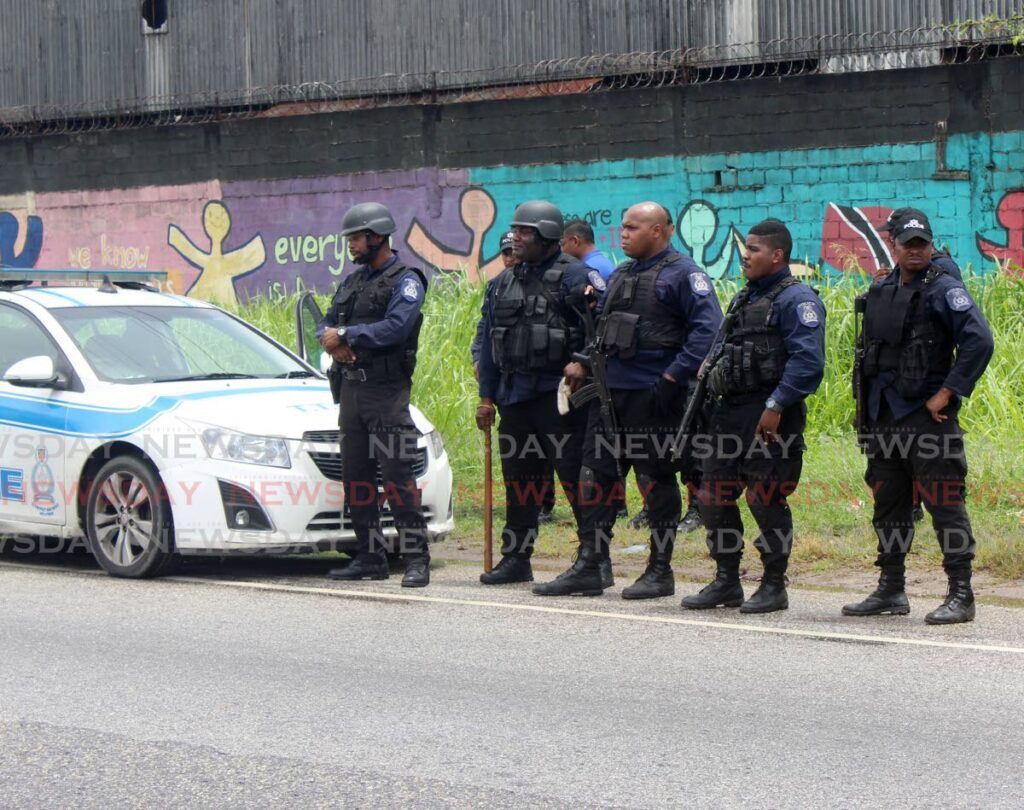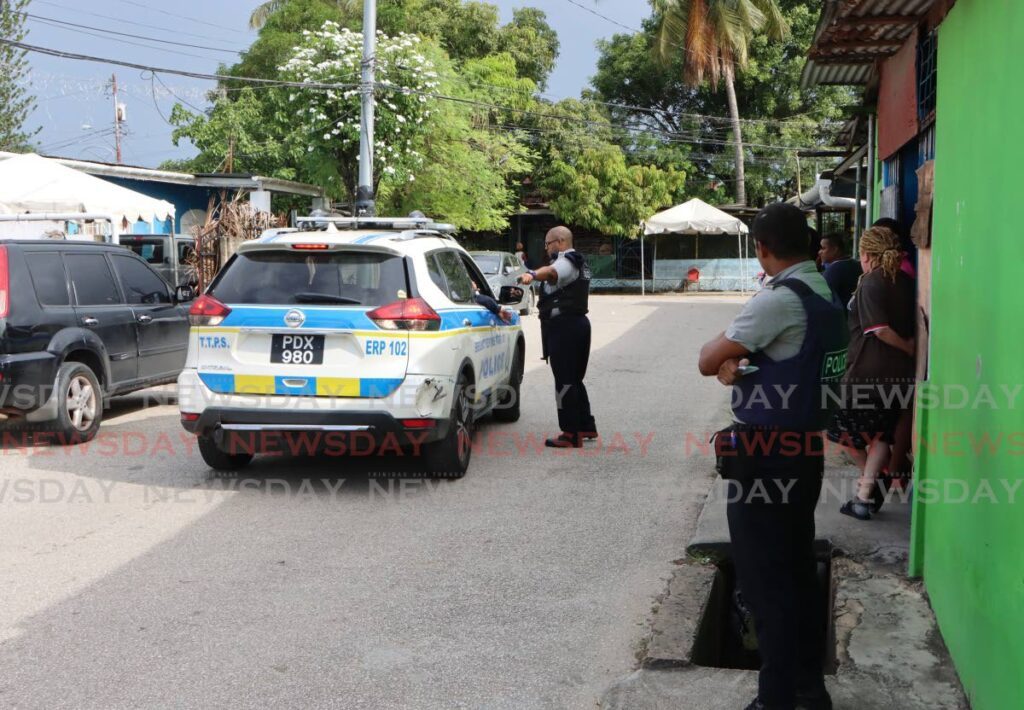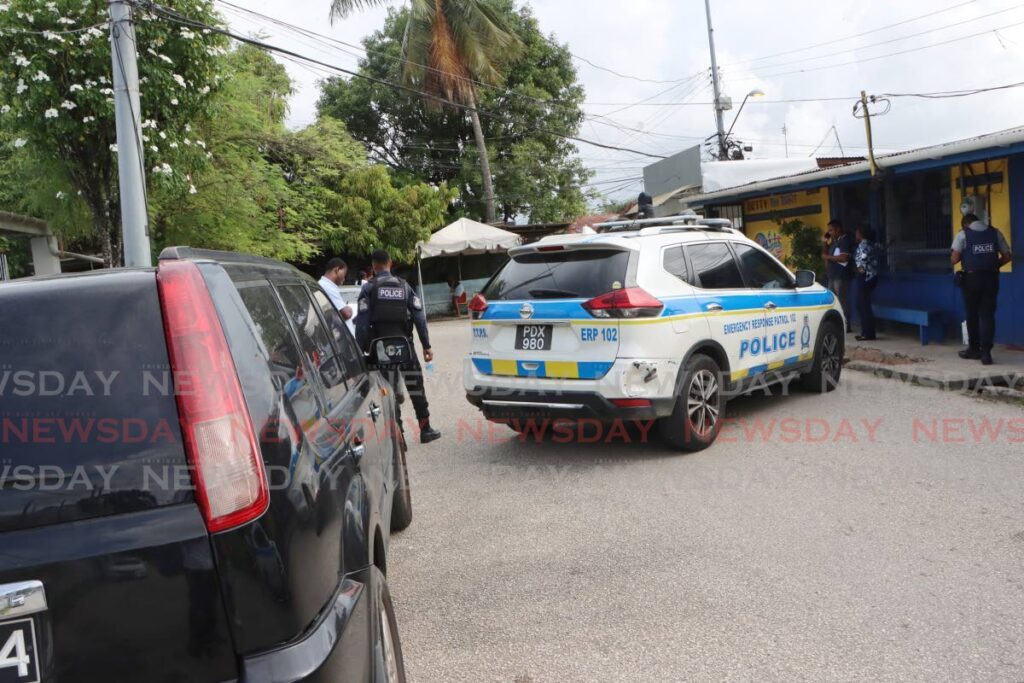Police action sparks debate over anti-crime strategy – 'Don't stop the party'

IN less than a month, the police service has successfully objected to the granting of dancehall and liquor licences for several events, citing concerns over public safety, gang activity and potential violence.
Despite promoters’ efforts to ensure security, the most recent case involved Classic Kings Promotions, whose November Freeze event, scheduled for November 16 at the Brian Lara Cricket Academy in Tarouba, was cancelled.
This followed previous cancellations and licence denials for birthday celebrations hosted by Ancel "Prezi/Chemist" Villafana,at Beetham Gardens on November 8, and Kashif “Kman 6ixx” Sankar at St Paul Street, East Port of Spain on November 2. Both individuals had been previously charged under the Anti-Gang Act, and their events were stopped.
Counselling psychologist Sule Joseph believes the police missed a crucial opportunity to build goodwill with the communities in which these events were planned. He said residents in these areas are survivors and highly creative, and rather than holding open, regulated events, they may now resort to more clandestine methods to hold similar activities.
Joseph warned, this will make it harder for the police to manage and monitor.
“I really feel as though we missed a golden opportunity, not just to buy goodwill but also to support these communities and show that the police can ensure a safe environment.”
He also suggested the event could have served as an opportunity for police to apprehend individuals they had been tracking. Joseph argued the justice system missed an opportunity to take a more strategic approach to crime prevention, and advocated for a more thoughtful, community-focused strategy.
“This should have been an opportunity to fight crime from a more cerebral, liberal perspective, not just by targeting criminals, but by working with the community.”

He added that many residents in those communities already have a deep distrust of police and for them, the police actions are seen as part of a long-standing system of oppression.
Joseph recounted a conversation with a Beetham community member who said, “Babylon doesn’t want us to have anything nice.” He explained that for these communities, this is viewed as another chapter in the system fighting against them.
Joseph highlighted the resourcefulness of residents, referencing the popularity of street boxing competitions during the pandemic as a way to resolve frustrations and conflicts.
“They are creative when it comes to dealing with challenges,” he said, suggesting that while these activities may not change, they are likely to move to less regulated, more discreet locations.
Joseph said high-end hotels in Port of Spain are now limiting guests and the number of people in rooms, saying each guest must now be registered because the rooms are now being used for celebrations away from prying police eyes.
He said events could also shift to private homes in gated communities, making them even more difficult for the police to monitor.
Joseph acknowledged that the cancelled events may have been credible threats justifying the police’s actions, but reiterated that cancelling these events represented a missed opportunity to engage with the community in a positive way while also building trust.
Victoria Siewnarine-Geelalsingh, president-elect of the TT Association of Psychologists and a clinical psychologist, commended the authorities’ efforts to curb crime, but expressed concern over the psychological toll these measures might have on at-risk communities.

While she acknowledged the importance of crime prevention, she stressed that strategies should not come at the expense of residents' mental health. Siewnarine-Geelalsingh argued that social interactions, such as those that take place at public events, are crucial to people’s sense of identity and well-being.
“Our sense of identity is strongly tied to our social interactions. If we restrict public events, we don’t eliminate the desire for connection: we merely drive it underground, often leading to gatherings that are harder to police and carry the same risks.”
She warned that when communities feel targeted or oppressed by law enforcement, particularly if they perceive these actions as unjust, it can increase solidarity among residents, including those with criminal inclinations.
“This sense of unity can inadvertently strengthen criminal ideologies, especially among younger, impressionable individuals.”
Siewnarine-Geelalsingh stressed that crime-prevention efforts should address the root causes of criminal behaviour – frustration, lack of belonging and psychological strain – not just the symptoms. She called for greater collaboration between police and community members to develop crime prevention strategies that foster understanding and co-operation.
“People are more likely to comply with policies they have had a hand in shaping,”
Emphasising the importance of clear communication between event organisers and authorities she said this would allow better planning and reduce the need for last-minute cancellations.
Siewnarine-Geelalsingh also underscored the importance of rebuilding trust between law enforcement and the communities they serve.
“It takes just one side to extend an olive branch. Police need to approach situations with kindness and compassion, showing they are there to protect, not judge or exert control.”
She added the key to long-term crime prevention lies in fostering a sense of psychological safety and self-worth in communities.
Robert Thompson, president of the TT Promoters Association, also spoke about the need for clearer communication and a consistent approach when it comes to event licensing.
While he acknowledged that the promoters involved in the cancelled events are not currently members of his association, he expressed solidarity with them, recognising the financial peril caused by such cancellations.
Thompson stressed the importance of collaboration between promoters and authorities, particularly the police and fire departments, to establish clear guidelines for event planning.
“We need to work together to achieve the best outcomes for everyone involved,”
He said better communication between stakeholders could prevent complications and disruptions and the association has requested meetings with the relevant authorities to discuss a more unified approach to event management, especially in light of the upcoming Carnival season.
“We need to meet with all the bodies involved in event management, including the police and fire departments, so we can all be better prepared.”
Minister of National Security Fitzgerald Hinds spoke with Newsday on November 16, reaffirming the police’s role is to protect the public and manage crime, particularly gang violence.
He said the government’s policies and laws, including the Anti-Gang Act, are designed to address gang-related issues and that the role of the police and courts is to enforce these laws.
On November 9, Commissioner of Police Erla Harewood-Christopher said the police had worked diligently to ensure the licence was not granted, adding, "We are going to ensure that no activities take place in Beetham."
In a WhatsApp conversation with Newsday, Deputy Commissioner of Police, Intelligence and Investigations, Suzette Martin said the police had objected to the licence in accordance with the provisions of the Liquor Licences Act.
She said the police felt the Licensing Committee had not properly considered the information they provided, particularly the risks posed to public safety and security. Martin cited ongoing gang violence and reported crimes in the Port of Spain Division and surrounding areas as significant factors in their objections.

Comments
"Police action sparks debate over anti-crime strategy – ‘Don’t stop the party’"